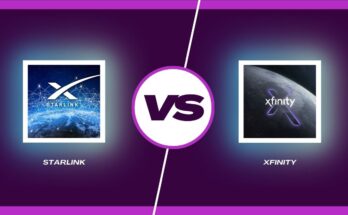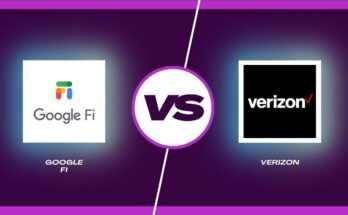Let’s be honest, when it comes to internet speeds, internet service providers use a lot of technical jargon that confuses customers all over the world. If you’re looking for a home WiFi setup, then you will need to learn about internet language and internet speeds. If almost all the technical talk goes over your head, you aren’t the only one.
Being confused causes people to choose an internet plan that doesn’t really suit their needs. In this article, we have created a guide to internet speeds which will help the users to get around technical jargon. Here’s how you can learn how much internet speed do you need?
What Determines My Internet Speed?
There are multiple types of internet connections to choose from and the internet speed you’ll get will be mainly based on your internet provider’s network type. The network type will determine download speeds, and upload speeds you’ll get based on your plan. Here’s all you need to know about all the things that determine internet speeds:
1. Types of Internet Connection
Whenever you’re looking for an internet service provider, you may come across advertisements for DSL, Cable, or Fiber internet service. Fiber is the fastest internet service available, in the market currently and all the advertisements will glorify that in the same way.
All the advertisements try to show fiber internet connectivity as the next best thing in the world of networks. Fiber is different from all kinds of internet connections as it is faster than Cable, DSL, and even Satellite Internet connections.
Fiber is the fastest internet connection in the industry as it uses fiber and glass mesh cables that carry internet connectivity at the speed of light. Using fiber cables, you can carry internet connection over a long distance without losing speed & data. Cable and DSL networks in comparison fall behind when it comes to carrying internet data over long distances.
Cable and DSL connection are the next best options if you can’t get fiber internet connectivity in your area. Satellite internet is for those who live in rural areas with limited internet connectivity. One of the primary factors that determine how much internet speed you’ll get is the type of internet connection you have as your home WiFi.
2. Download Speeds
The second factor that determines the internet speed is the maximum download speed you have chosen for your internet plan. All the internet service providers globally advertise internet plans based on the maximum download speeds you’ll get for your plan. The way upload and download speeds work is by the time taken by the data sent to a server and the time consumed by data received by a server to your device.
If you have low download and upload speeds then the data you send and receive will take you more time than expected. The more devices you add to a particular network with slow upload and download speed, the sluggish a network will become.
When you have an internet plan with fast internet speeds, it can fulfill all your needs for internet connectivity. Let’s say that you are downloading a two-hour HD movie which is around 8 GB in size, a basic 25 MBPS download speed can complete the downloading in around 40 minutes.
If you live with your family and if you work from home then you need a minimum speed of 100 MBPS. If you download the same movie on a 100 MBPS connection, it will be downloaded in under 15 minutes. While this may not seem like a lot but in a proper working environment, you can save a lot of time.
If you end up choosing fiber internet-based 1000 MBPS speed, then you can download the same movie in under a minute. Which is an incredible feat for an internet connection.
3. Upload Speeds
It’s really uncommon but sometimes internet service providers will advertise upload speeds right beside download speeds. Uploading data refers to sending information from your device to any online server. Even clicking open a new web page requires fast upload speeds. Posting photos on Facebook or doing a video conference requires a lot of upload speeds as well.
Uploading speeds are most important for those who constantly send large files such as uploading videos, almost everyone requires the same kind of upload speeds. At a bare minimum, the upload speeds of the internet plan should have 3 MBPS. If you need more upload speed then you need a fiber internet connection for your home or your business.
What is The Best Internet Provider For Speed?
Xfinity offers the fastest internet speeds out of all the providers, but providers like Verizon and AT&T have also fast internet plans at a lesser price per month. Here is our pick for the fastest internet providers:
| Provider | Price | Download Speeds | Upload Speeds |
| Verizon | $49.99-$79.99/mo. | 200-940 Mbps | 200-880 Mbps |
| Optimum | $39.99-$69.99/mo. | 300-1,000 Mbps | 35-940 Mbps |
| AT&T | $35.00-$60.00/mo. | 100-940 Mbps | 20-940 Mbps |
| Xfinity | $20.00-$299.95/mo. | 25-2000 Mbps | 2-35 Mbps |
| RCN | $19-$59.99/mo | 10-940 Mbps | 10-20 Mbps |
The options you have for home internet can depend on where you actually live. The USA has more than 2500 internet service providers, and you can find internet service providers who will fulfill your needs.
How Much Internet Speed Do You Need?
The speed you get in your home depends on how big your house is, and how many people use the internet in your home. A gigabit plan might offer you the best speeds, but it doesn’t mean the plan will fit perfectly all over your home.
If you live alone and you don’t have a huge internet activity except for scroll social media then you don’t really need a fiber gigabit plan. Although if your home has a lot of smart devices and multiple people who require a high-speed internet connection for 4K video streaming, online gaming, and more then you would want a high-end plan.
Your internet speeds can even depend on external issues such as network traffic, so consider the speeds offered by providers as a general estimation. Here’s the average internet speed that you require:
| Internet Speed | Well Known for | Number of Users |
| 25-100 Mbps | Web browsing and watching online videos. | 1-3 people |
| 100-300 Mbps | Regular video calls, online games and 4K video streaming. | 3-5 people |
| 300-1000+ Mbps | Frequent 4K streaming and video calls, transferring large files and for multiple users who work from home. | 5+ people |




